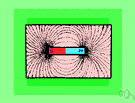flux
(redirected from fluxes)Also found in: Thesaurus, Medical, Idioms, Encyclopedia.
flux
(flŭks)n.
1.
a. A flow or flowing of a liquid.
b. The flowing in of the tide.
c. A continuing movement, especially in large numbers of things: a flux of sensation.
2. Constant or frequent change; fluctuation: "The constant flux of people and groups ensures that human gene pools will always be mixed" (Steve Olson).
3. Medicine The discharge of large quantities of fluid material from the body, especially the discharge of watery feces from the intestines.
4. Physics
a. The rate of flow of fluid, particles, or energy through a given surface.
b. See flux density.
c. The lines of force of an electric or magnetic field.
5. Chemistry & Metallurgy A substance that aids, induces, or otherwise actively participates in fusing or flowing, as:
a. A substance applied to a surface to be joined by welding, soldering, or brazing to facilitate the flowing of solder and prevent formation of oxides.
b. A mineral added to the metals in a furnace to promote fusing or to prevent the formation of oxides.
c. An additive that improves the flow of plastics during fabrication.
d. A readily fusible glass or enamel used as a base in ceramic work.
v. fluxed, flux·ing, flux·es
v.tr.
1. To melt; fuse.
2. To apply a flux to.
v.intr.
1. To become fluid.
2. To flow; stream.
[Middle English, from Old French, from Latin flūxus, from past participle of fluere, to flow; see bhleu- in Indo-European roots.]
American Heritage® Dictionary of the English Language, Fifth Edition. Copyright © 2016 by Houghton Mifflin Harcourt Publishing Company. Published by Houghton Mifflin Harcourt Publishing Company. All rights reserved.
flux
(flʌks)n
1. a flow or discharge
2. continuous change; instability
3. (Metallurgy) a substance, such as borax or salt, that gives a low melting-point mixture with a metal oxide. It is used for cleaning metal surfaces during soldering, etc, and for protecting the surfaces of liquid metals
4. (Metallurgy) metallurgy a chemical used to increase the fluidity of refining slags in order to promote the rate of chemical reaction
5. (Ceramics) a similar substance used in the making of glass
6. (General Physics) physics
a. the rate of flow of particles, energy, or a fluid, through a specified area, such as that of neutrons (neutron flux) or of light energy (luminous flux)
b. the strength of a field in a given area expressed as the product of the area and the component of the field strength at right angles to the area: magnetic flux; electric flux.
7. (Pathology) pathol an excessive discharge of fluid from the body, such as watery faeces in diarrhoea
8. the act or process of melting; fusion
9. (Philosophy) (in the philosophy of Heraclitus) the state of constant change in which all things exist
vb
10. to make or become fluid
11. (Metallurgy) (tr) to apply flux to (a metal, soldered joint, etc)
12. (tr) an obsolete word for purge
[C14: from Latin fluxus a flow, from fluere to flow]
Collins English Dictionary – Complete and Unabridged, 12th Edition 2014 © HarperCollins Publishers 1991, 1994, 1998, 2000, 2003, 2006, 2007, 2009, 2011, 2014
flux
(flʌks)n.
1. a flowing or flow.
2. the flowing in of the tide.
3. continuous change or movement: Our plans are in a state of flux.
4.
a. the rate of flow of fluid, particles, or energy.
b. a quantity expressing the strength of a field of force in a given area.
5.
a. a substance used to refine metals by combining with impurities to form a molten mixture that can be readily removed.
b. a substance used to prevent oxidation of fused metal, as in soldering.
6. an abnormal discharge of liquid matter from the bowels.
v.t. 7. to melt; make fluid.
8. to fuse by the use of flux.
v.i. 9. to flow.
[1350–1400; Middle English < Latin fluxus flow, discharge, variant of fluctus; see fluctuate]
Random House Kernerman Webster's College Dictionary, © 2010 K Dictionaries Ltd. Copyright 2005, 1997, 1991 by Random House, Inc. All rights reserved.
flux
(flŭks)1. A substance used in a smelting furnace to make metals melt more easily.
2. The rate of flow of fluids, particles, or energy across a given surface or area. See magnetic flux.
The American Heritage® Student Science Dictionary, Second Edition. Copyright © 2014 by Houghton Mifflin Harcourt Publishing Company. Published by Houghton Mifflin Harcourt Publishing Company. All rights reserved.
flux
Past participle: fluxed
Gerund: fluxing
| Imperative |
|---|
| flux |
| flux |
Collins English Verb Tables © HarperCollins Publishers 2011
flux
A flow of particles, a fluid, or an electric or magnetic field.
Dictionary of Unfamiliar Words by Diagram Group Copyright © 2008 by Diagram Visual Information Limited
ThesaurusAntonymsRelated WordsSynonymsLegend:
Switch to new thesaurus
| Noun | 1. | flux - the rate of flow of energy or particles across a given surface rate - a magnitude or frequency relative to a time unit; "they traveled at a rate of 55 miles per hour"; "the rate of change was faster than expected" neutron flux - the rate of flow of neutrons; the number of neutrons passing through a unit area in unit time radiant flux - the rate of flow of radiant energy (electromagnetic waves) |
| 2. | flux - a flow or discharge | |
| 3. | flux - a substance added to molten metals to bond with impurities that can then be readily removed chemical, chemical substance - material produced by or used in a reaction involving changes in atoms or molecules soldering flux - flux applied to surfaces that are to be joined by soldering; flux cleans the surfaces and results in a better bond | |
| 4. | flux - excessive discharge of liquid from a cavity or organ (as in watery diarrhea) pathology - any deviation from a healthy or normal condition | |
| 5. | flux - a state of uncertainty about what should be done (usually following some important event) preceding the establishment of a new direction of action; "the flux following the death of the emperor" state - the way something is with respect to its main attributes; "the current state of knowledge"; "his state of health"; "in a weak financial state" | |
| 6. |  flux - the lines of force surrounding a permanent magnet or a moving charged particle flux - the lines of force surrounding a permanent magnet or a moving charged particlefield of force, force field, field - the space around a radiating body within which its electromagnetic oscillations can exert force on another similar body not in contact with it magnetosphere - the magnetic field of a planet; the volume around the planet in which charged particles are subject more to the planet's magnetic field than to the solar magnetic field solar magnetic field - the magnetic field of the sun | |
| 7. | flux - (physics) the number of changes in energy flow across a given surface per unit area natural philosophy, physics - the science of matter and energy and their interactions; "his favorite subject was physics" | |
| 8. | flux - in constant change; "his opinions are in flux"; "the newness and flux of the computer industry" change - the action of changing something; "the change of government had no impact on the economy"; "his change on abortion cost him the election" | |
| Verb | 1. | flux - move or progress freely as if in a stream; "The crowd flowed out of the stadium" move - move so as to change position, perform a nontranslational motion; "He moved his hand slightly to the right" transpirate, transpire - pass through the tissue or substance or its pores or interstices, as of gas |
| 2. | flux - become liquid or fluid when heated; "the frozen fat liquefied" natural philosophy, physics - the science of matter and energy and their interactions; "his favorite subject was physics" change integrity - change in physical make-up condense, distil, distill - undergo condensation; change from a gaseous to a liquid state and fall in drops; "water condenses"; "The acid distills at a specific temperature" dethaw, thaw, unfreeze, unthaw, melt, dissolve - become or cause to become soft or liquid; "The sun melted the ice"; "the ice thawed"; "the ice cream melted"; "The heat melted the wax"; "The giant iceberg dissolved over the years during the global warming phase"; "dethaw the meat" fuse - become plastic or fluid or liquefied from heat; "The substances fused at a very high temperature" | |
| 3. |  flux - mix together different elements; "The colors blend well" flux - mix together different elements; "The colors blend well"change integrity - change in physical make-up gauge - mix in specific proportions; "gauge plaster" absorb - cause to become one with; "The sales tax is absorbed into the state income tax" meld, melt - lose its distinct outline or shape; blend gradually; "Hundreds of actors were melting into the scene" mix in, blend in - cause (something) to be mixed with (something else); "At this stage of making the cake, blend in the nuts" accrete - grow together (of plants and organs); "After many years the rose bushes grew together" conjugate - unite chemically so that the product is easily broken down into the original compounds admix - mix or blend; "Hyaline casts were admixed with neutrophils" alloy - make an alloy of syncretise, syncretize - become fused |
Based on WordNet 3.0, Farlex clipart collection. © 2003-2012 Princeton University, Farlex Inc.
flux
noun
1. instability, change, transition, unrest, modification, alteration, mutation, fluctuation, mutability a period of economic flux
Collins Thesaurus of the English Language – Complete and Unabridged 2nd Edition. 2002 © HarperCollins Publishers 1995, 2002
flux
nounverb
The American Heritage® Roget's Thesaurus. Copyright © 2013, 2014 by Houghton Mifflin Harcourt Publishing Company. Published by Houghton Mifflin Harcourt Publishing Company. All rights reserved.
Translations
تَدَفُّق، جَرَيان، سَيْل
neustálá změna
állandó változás
óvissa, ótryggt ástand
nuolatinė kaita
nepārtraukta mainība
stála zmena
sürekli değişim
Collins Spanish Dictionary - Complete and Unabridged 8th Edition 2005 © William Collins Sons & Co. Ltd. 1971, 1988 © HarperCollins Publishers 1992, 1993, 1996, 1997, 2000, 2003, 2005
Collins English/French Electronic Resource. © HarperCollins Publishers 2005
flux
Collins German Dictionary – Complete and Unabridged 7th Edition 2005. © William Collins Sons & Co. Ltd. 1980 © HarperCollins Publishers 1991, 1997, 1999, 2004, 2005, 2007
Collins Italian Dictionary 1st Edition © HarperCollins Publishers 1995
flux
(flaks) noun continual change. Events are in a state of flux.
Kernerman English Multilingual Dictionary © 2006-2013 K Dictionaries Ltd.
flux
n. flujo excesivo proveniente de una cavidad u órgano del cuerpo.
English-Spanish Medical Dictionary © Farlex 2012